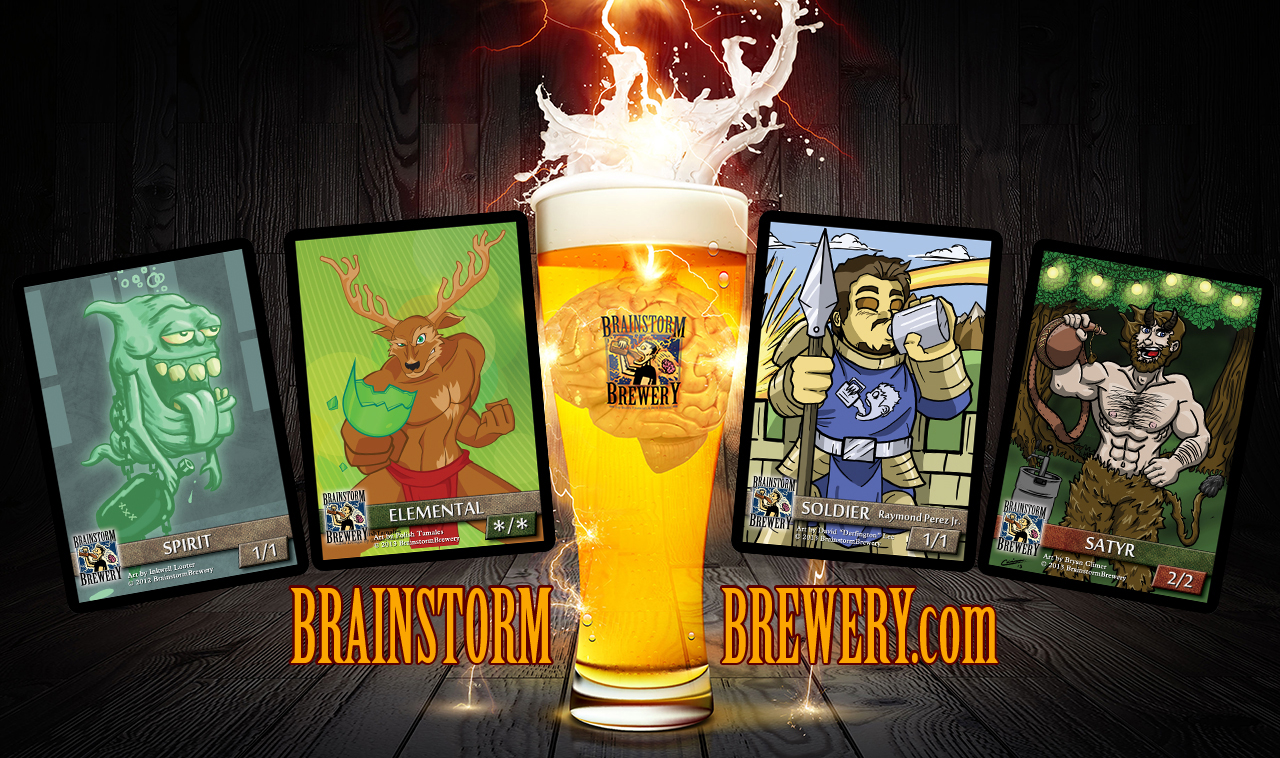
Trigger Warning
This article is going to be about the use of “rape” and other references to sexualized violence in our community. In lieu of a formalized all-encompassing trigger warning, I believe it is more productive to be transparent about the direction in which I am leading this discussion. If you feel you would be traumatized or re-victimized by reading details of a sexual assault case or general conversation about rape, I recommend you avoid reading this article. If you decide to march forward any way and end up feeling upset, I am sorry for your pain. Please know you are not alone, and you will endure! May I direct you to these resources.
The Impetus…
Just over ten years ago, Zachary Jesse plead guilty to aggravated sexual battery, a felony, due to charges resulting from non-consensual vaginal and anal contact he forced upon another undergraduate student. Why is this relevant? Because this past Sunday, on May 10, Zach Jesse was a top-eight competitor at Grand Prix Atlantic City.
He was featured on screen without comment. In response, Drew Levin distributed news media links alerting other viewers to Jesse’s history and the coverage team’s oversight in including him. Immediately and unsurprisingly, Twitter erupted in a flurry of conversation. While many professional players and Magic: The Gathering talking heads displayed their disgust at the coverage team’s decision to feature Jesse, much of the playerbase involved in the conversation rejected the notion that Wizards had erred.
…and the Broader Problem
The Zach Jesse debacle is not isolated. Many of you may recall when Lucas Florent threatened to rape Director of Global Organized Play Helene Bergeot in 2011. His “lifetime” ban lasted all of six months. Jackie Lee has also been vocal about the rape threats she has faced for daring to be a woman who plays Magic well and visibly.
Each of these three situations are extreme examples of a problem I believe the MTG community faces regularly: alienating potential participants and active players through threats or relying on outmoded, offensive language that associates being defeated in a card game with a grave crime.
While it may be tempting to cast aside my concerns by attributing this disgraceful behavior to the social distance the internet provides, the players who tweet ferociously in defense of Zach Jesse or sling rape threats online patronize local game shops, too. I routinely hear players in my LGS and at tournaments say things like, “Oh, you just got raped!” usually with a gleeful smile on their faces. I am tying together a common trend and exemplary incidents because I believe the former cultivates an environment in which the latter can occur.
You may inquire: what does this have to do with women playing MTG? Women are disproportionately affected by sexualized violence. If you have more than a few women in a room, statistically, it is likely at least one of them has encountered rape or sexual assault. When you are flippant about your utilization of language or—as I saw repeatedly on Twitter this weekend—you defend a convicted rapist’s “right” to play a game, you signal to those present that you are not a safe person from whom to seek solace. You are not empathetic. You are not deliberate with your actions. You have not achieved a level of emotional maturity where you can be conscientious and distinguish between governmental censorship and a care-centered ethos that builds community. Now, if you would like to continue to reproduce these patterns of behavior and erect strawmen decrying a fabricated vision of institutional enforcement that very few MTG players have ever seriously endorsed…that’s fine. But I don’t want to play with you. I do not trust you. And you shouldn’t be surprised when other women [Editor’s note: or men!] don’t want to, either.
Fostering a hostile environment toward rape victims can dissuade women from participating, but it also has implications outside of exploring women’s limited role in Magic. Men experience sexualized violence at stunning rates, too.
Imploring fellow players and MTG community members to self-examine their behavior isn’t borne from of a desire to stamp out difference, eradicate fun, or be a wet blanket—it is about compassion and breeding an environment where the highest number of people can maximize their enjoyment. It is a matter of acknowledging that others have experiences that differ from your own and which may have lasting impacts of varying degrees. It is an issue of mutual respect and appreciation.
MTG is necessarily a social game, which means our interactions within the context of playing constitute the gaming environment. If it were not, you would be solely satisfied with emulators that mimic decision trees. Reducing the harm we enact against others is a complex process rife with competing interests. In this instance, however, I think the mental calculus is a simple weighing of costs and benefits. It costs you very little to be purposeful with your language. For someone suffering with PTSD, your failure to exert what will ultimately be a negligible effort for you, this seemingly small mistake can cost a great deal.
“Free Speech” and “Being Offended” versus Community Cultivation
To those whose fingers itch to unload on me, whose internal cogs whirl like a cartoon character’s feet before they again gain traction and dash forward, as a bastion of “PC culture,” please evaluate what made you so bitter and eager to incite pain.
If your only line of logic is, “They’re denying my freedom of speech,” you are willfully misunderstanding the First Amendment of the Bill of Rights. To those detractors who would reply with a slippery slope argument of, “If I can’t say ‘rape,’ what next?” I ask that you appraise why you are so analytically lazy. If you would like to relish and praise your inability to identify gradation between institutionally imposed bans and self-inspection, you have only fulfilled the claims of those who accuse trading card players of being stunted.
“Oh, does this mean next we can’t say ‘kill’?”
Typically, murder victims are unable to hear jokes surrounding their abuse, because they are, well, dead. Unfortunately, they are not able to participate in the massive multiplayer game we call life or the MTG community any longer. Furthermore, rates of murder are notably lower than sexualized violence:
| National or state crime in 2012 | |||
| State | Population | Murder and nonnegligent manslaughter rate | Forcible rape rate |
| United States-Total | 313914040 | 4.7 | 26.9 |
It is rather unlikely you would encounter an attempted murder victim in your LGS, while the same cannot be said of victims of sexualized violence. Lastly, people do not generally attribute murder to the behavior or past actions of murder victims, while rape survivors are routinely blamed for their victimization. There is no cultural ambiguity about the nature of murder, but confusion over the “boundaries” of consent is still regularly levied as a legal defense.
Rape victims are not figments of “misandrists’” imaginations. We exist. You play with us at LGSs, online, and around your kitchen tables. You trade with, buy from, and sell to us. We are members of the MTG community and we deserve to reap the rewards that a solidified subcultural environment can provide—camaraderie, fun, support, and growth—just the same as those who have not had to endure sexualized violence.
Drew Levin posed some questions on Twitter on which I would like all naysayers and doubters to reflect:
Possible Solutions
Of course, it is misguided to identify a problem without proposing a solution.
What language should replace the offending language people are currently employing?
Some replacements I have heard recommended are “owned” and “rekt.” I would encourage you to be even more creative! May I point you toward a Shakespearean insult generator?
Now, I have heard claims that “rekt” or other variations are at risk of becoming substitutes that maintain the original meaning of the offensive language in question. You know your own intentions. If your trash talk is a loosely-veiled allegory for sexualized violence consider revising your statement before you speak. If your trash talk relies upon cultural scripts surrounding gendered patterns of dominance, reevaluate! Ask yourself why you would wish to inflict that sort of trauma on someone with whom you are playing a game. Hell, remove the final qualifier of that sentence. Why would you wish to inflict pain on anyone?
What should you do when you hear someone else use this language?
Speak up! Be polite but firm. In most instances I have personally experienced it suffices to say something along the lines of, “Hey, could you please not use that word?” Rarely have I encountered negative responses to that request, at least in person.
As for online play, I have no suggestions that have proven efficacious. Once in an online MTG interface, I asked nicely and at least four of the draft members proceeded to independently message me grotesque and detailed rape threats. Social desirability bias of in-person interactions obviously renders some techniques less effective online. As to what will rectify this beyond programmer-inserted chat filters, your guess is as good as mine. We have to be accountable to each other. The buck needs to stop somewhere.
I look forward to reading your responses to my thoughts, to the Zach Jesse scandal, and to the issue of the use of “rape” in our community.

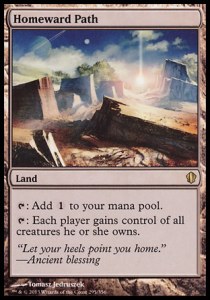
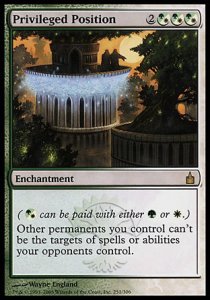
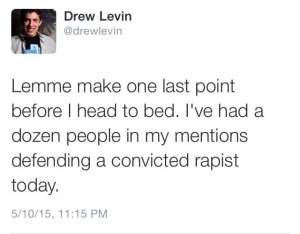
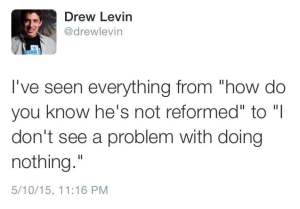
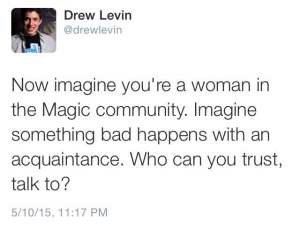
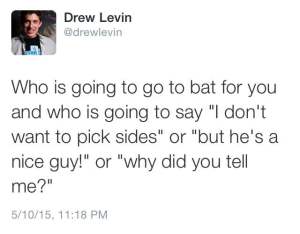
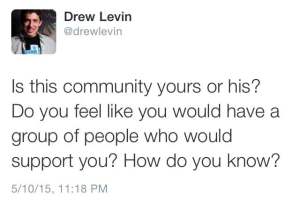
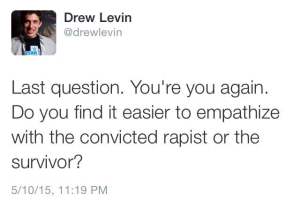
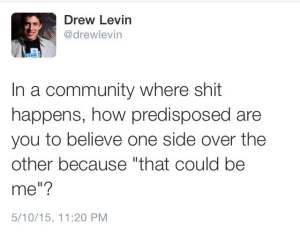
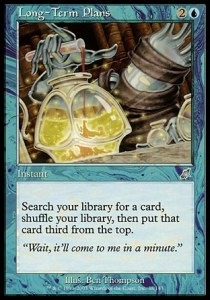
91 comments on The Status of Women in Magic: Let’s Talk About “Rape”